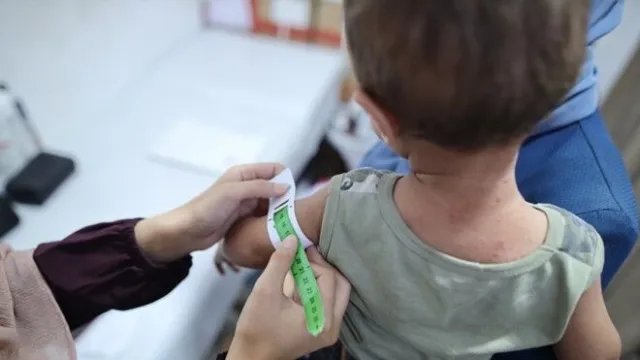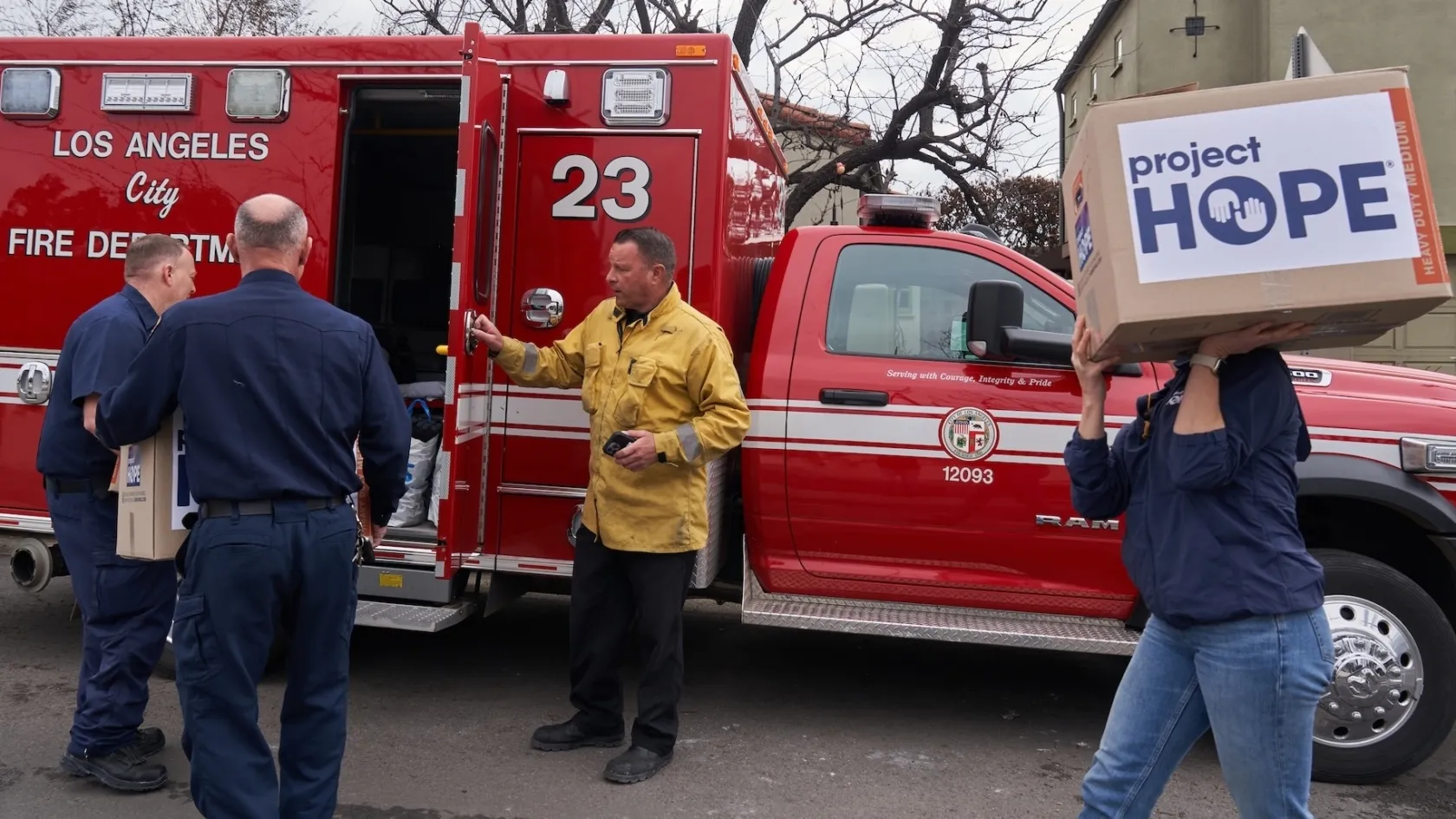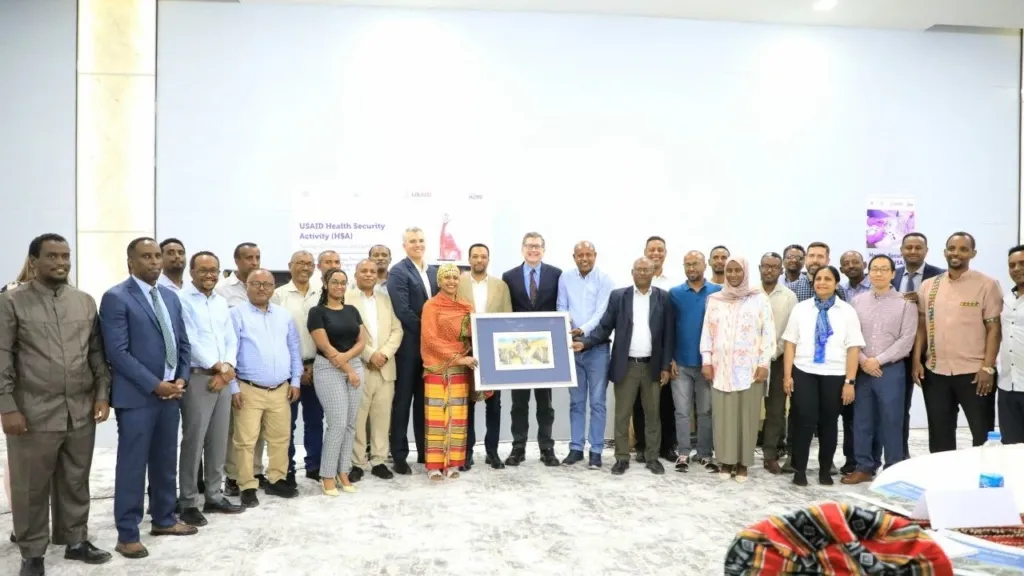Gaza: Need for Increased Aid Access to Avoid Famine

Project HOPE has been screening and treating malnutrition in its health clinics in Gaza as it faces a “high risk of Famine.” About 96% of the population is facing high levels of acute food insecurity (IPC Phase 4) and nearly half a million are facing catastrophic levels (IPC Phase 5). Despite the overwhelming need, humanitarian food supplies entering Gaza are down 75% compared to the average volume entering between November 2023 and May 2024.
A mother named Ameini brought her eighteen-month-old son Motaz to Project HOPE’s Khan Younis clinic for malnutrition: “My child was born a healthy, active baby with a potbelly. He laughed, cried, and interacted. But due to a lack of food, he became lethargic and weak. He stopped responding to me—his mother. There were no smiles, no activity. He became indifferent, almost like a doll. At one year and two months, his weight was that of an eight-month-old.”
The ongoing displacement and food insecurity across Gaza has also severely disrupted infant and young child feeding practices. 160,000 pregnant and breastfeeding women across Gaza need supplementary feeding and micronutrient supplementation. A mother to an eight-month-old baby boy named Magal was referred to the clinic due to her son’s persistent colds – a common symptom of weakened immunity due to malnutrition: “The pregnancy went well, and my baby was born healthy and robust. But when the war started, I continued breastfeeding him on demand as advised by doctors. Despite this, he did not gain weight and became inactive and depressed. My own lack of food affected the quality of my milk, leaving him without the strength and energy he needed.”
Both baby Motaz and Magal have received care and treatment for the past eight weeks through Project HOPE and have reached a healthier weight range. Clinic staff remain in close contact with their families to monitor their progress and oversee their ongoing recovery. Without a significant surge in humanitarian aid delivery, however, lifesaving interventions like these will be limited.
Further complicating the humanitarian crisis, the Israeli military have already issued nine separate evacuation orders in the month of August, displacing 213,000 people in Khan Younis, Deir al Balah, and northern Gaza, including one of Project HOPE’s pharmacists who has been displaced eight times. The “humanitarian area” has been reduced to just 11% of Gaza’s total area and over 90% of Gazans are displaced. Shelter and hygiene supplies remain extremely limited, leaving families increasingly exposed and vulnerable and increasing the risk of infectious diseases.
Project HOPE is continuing to support Palestinian communities affected by the conflict throughout Gaza and the West Bank via primary health clinics, trauma and surgical surge staffing, medical and hygiene supplies, and mental health support. Access photos and videos here and direct interview/media requests to media@projecthope.org or Courtney Ridgway at +1 707-480-6975.
###



